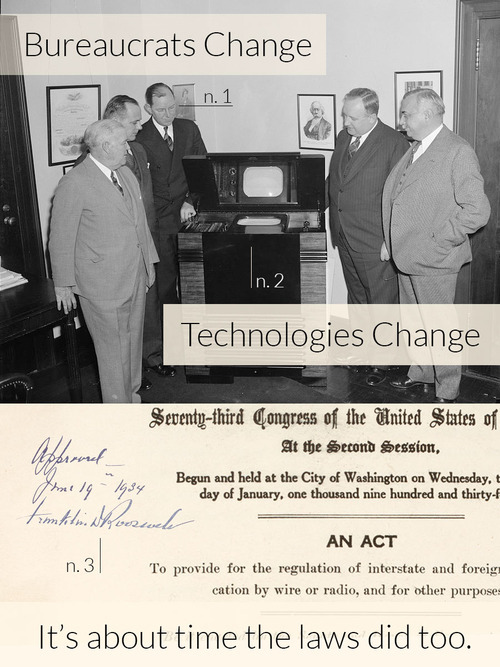
Eighty years ago today, FDR signed the Communications Act of 1934. Congress has tinkered with the Act a few times, but the basic approach remains the same: regulatory silos for distinct services. Meanwhile, of course, the Internet has fundamentally transformed how we communicate with each other. Voice, broadcast and video are just apps delivered over competing platforms: cable, copper, fiber, wireless…
It isn’t just “Voice over IP.” It’s everything over IP. Yet the law hasn’t kept pace.
Twenty years ago, there was a bipartisan consensus for fundamental reform. Clinton and Gore wisely proposed abandoning the regulatory formalism of the 1934 Communications Act. Republicans agreed that regulation should focus on effects on consumers, not static snapshots of constantly evolving markets. Yet… what came out of the legislative process was a mess. The 1996 Telecom Act did clear the way for competition in some respects, but it also preserved the siloed approach of the 1934 Act. And it’s increasingly breaking down in the real world — especially as the FCC struggles with the complex, divisive issue of Net Neutrality.
We say it’s high time for a Digital Age Communications Act — something Republicans and Democrats should agree on, at least in principle.
